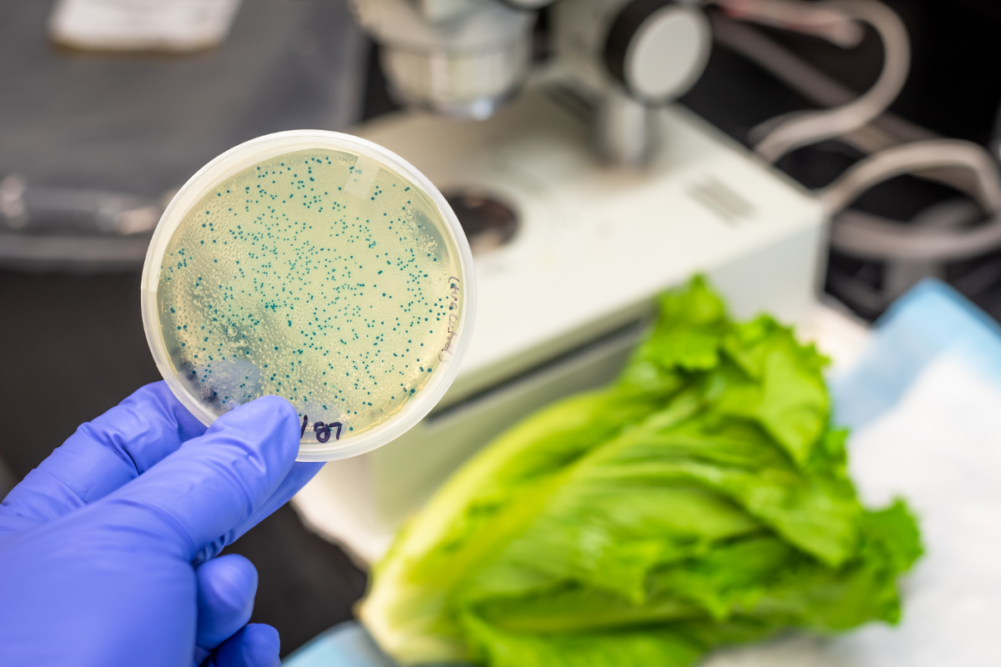WASHINGTON, D.C. - The US Food and Drug Administration (FDA) has released its findings in an investigation into the contamination of romaine lettuce implicated in three outbreaks of E. coli 0157:H7 in the fall of 2019.
All three outbreaks were associated with romaine lettuce or leafy greens from the Salinas Valley area of California, and the FDA identified the following about the outbreaks:
-
Each of the three outbreaks was caused by distinctly different strains of E. coli O157:H7 as determined by whole genome sequencing (WGS) analysis;
-
Outbreak A strain of E. coli O157:H7 was found in two different brands of fresh-cut salads containing romaine lettuce in 2019;
-
Traceback investigations of multiple illness sub-clusters and supply chain information identified a common grower with multiple ranches/fields, which supplied romaine lettuce during the timeframe of interest to multiple business entities associated with Outbreaks A, B and C; and
-
The Outbreak A strain of E. coli O157:H7 was detected in a fecal-soil composite sample taken from a cattle grate on public land less than two miles upslope from a produce farm with multiple fields tied to the outbreaks by the traceback investigations.
-
Other STEC strains, while not linked to outbreaks A,B, or C, were found in closer proximity to where romaine lettuce crops were grown, including two samples from a border area of a farm immediately next to cattle grazing land in the hills above leafy greens fields and two samples from on-farm water drainage basins.
The FDA determined that adjacent land used for cattle grazing was the most likely contributing factor to the three outbreaks. While the agency could not confirm a definitive source or route of contaminations, the administration considered indirect transmission from fecal material from nearby lands from water run-off, wind, animals or vehicles to romaine fields or to the agricultural water sources used to grow the romaine as possible routes of contamination.
In response to the findings, California leafy greens growers have pledged to incorporate the determinations into the ongoing process of strengthening food safety practices on farms.
“As leafy greens farmers, we work hard every day to follow the best-known food safety practices,” said Dan Sutton, general manager of Pismo-Oceano Vegetable Exchange, which grows leafy greens in San Luis Obispo County. “Clearly we need to look even beyond our own farms to help us prevent future outbreaks. Information from this new FDA report will be extremely valuable as we further strengthen our practices both in and around our farms.”
The leafy greens industry hopes to learn more about how the leafy greens are being exposed to pathogens like E. coli in the environment through a series of research projects now underway in partnership with the FDA and the University of Arizona.
A series of subcommittees have also been appointed to review practices in all areas with a focus on water. The industry is considering approximately 30 changes to update the practices for water used in farming leafy greens.
Other subcommittees on soil amendments and sanitation have also been meeting, and a subcommittee on proximity of animals and adjacent land use is being appointed. All committees are looking to strengthening existing requirements.
“Even before these last outbreaks occurred, the leafy greens industry had launched a comprehensive process to review and update required food safety practices included under the California Leafy Greens Marketing Agreement (LGMA),” said Scott Horsfall, CEO of the LGMA, a food safety program which establishes uniform standards for how leafy greens are farmed and then verifies practices are taking place through mandatory government food safety audits of leafy greens farms.
“The goal is to create unified standards for how leafy greens are farmed using the best science and expertise available. We will be relying on information supplied by FDA, scientists and others to help us improve these practices so we can further protect consumers.”
Producers that are members of LGMA sign on to follow a set of science-based practices that require them to implement over 300 safety checkpoints, and each member is audited by the California Department of Food and Agriculture. Any member who does not comply is decertified, and their company name is shared with retail and foodservice buyers and the public.

